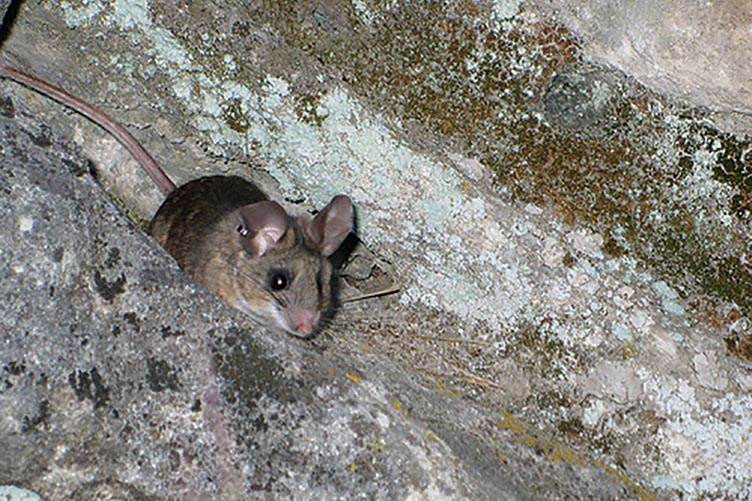
You know that expression, dying of thirst? Well, a UNH researcher and mice who survive in the California desert with little to no water could possibly disprove that.
Matthew MacManes, assistant professor of genome-enabled biology, has received a five- year grant from the National Institutes of Health (NIH) that will help him understand dehydration by studying the cactus mouse, a tiny desert rodent that’s adapted to survive both acute and chronic dehydration.
“We know that many people suffer from dehydration, from the elderly to soldiers in desert wars to the many people worldwide without access to clean water,” MacManes says. “Understanding how mice survive dehydration may help us understand why humans don’t survive it and maybe how we could help them.”
MacManes’s NIH Maximizing Investigators’ Research Award is for $1.7 million. “It’s a big award that’s going to support a lot of cool science,” he says. With the grant, MacManes and his team will study the physiology and genomics of Peromyscus eremicus, both in the southern California desert and back at McManes’s UNH lab. MacManes is homing in on how the mice maintain blood pressure in their kidneys when they’re severely dehydrated, as kidney failure is a serious complication of dehydration in humans.
“What if we could help soldiers, or other people who have to work in hot, dry environments, survive dehydration by feeding them a particular diet?” MacManes says of his long- term goals. He says this work is particularly relevant in a changing climate that’s predicted to make much of the Earth, particularly North America, hotter and drier.
-
Written By:
Beth Potier | UNH Marketing | beth.potier@unh.edu | 2-1566





















































